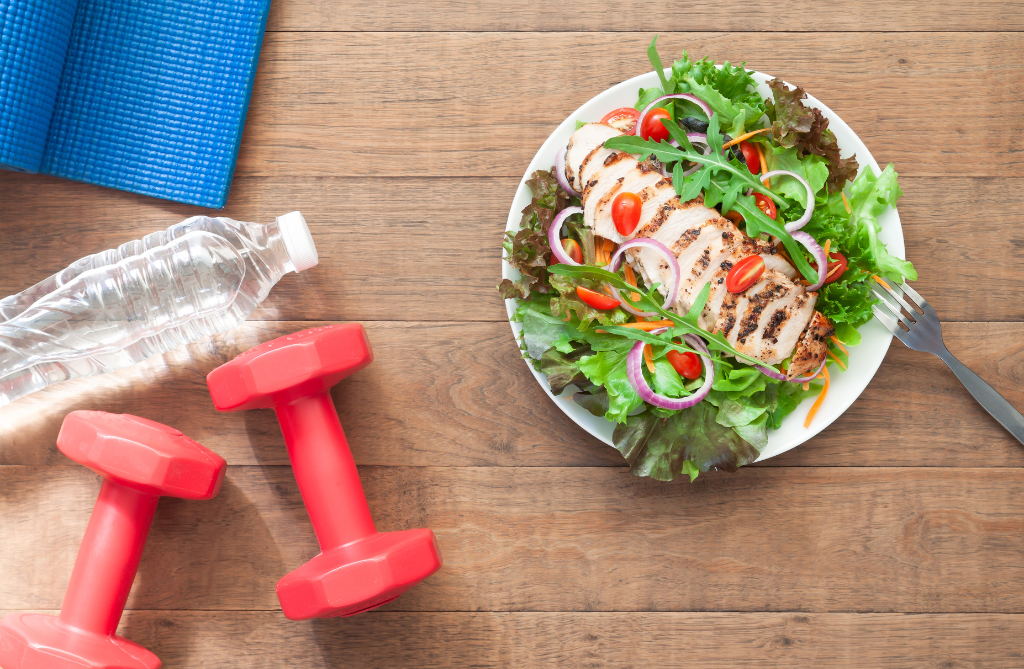Why Motivation Alone Isn’t Enough


This week inside the Nutrition Nook, we tackled a belief that keeps people stuck in the start-and-stop cycle of dieting:
“I just need to be more motivated.”
If that sounds familiar, you’re not alone. But here’s the truth backed by science and behavior psychology:
Motivation isn’t the key to long-term success—systems are.
Even the most motivated people in the world, top performers, elite athletes, etc, will be the first to tell you that they aren’t motivated every day. It’s their discipline that keeps them focused, working towards their goals and allowing the systems and structure they’ve built to keep them thriving.
In this recap, we break down exactly why motivation fails and what you can focus on instead to build habits that actually stick.
🧠 Motivation Is a Feeling—Not a Plan
We often treat motivation like a personal trait. You’re either motivated or you’re not, right? Wrong. According to BJ Fogg’s B=MAP model, behavior = motivation × ability × prompt.
Motivation is a wave, not a constant. It rises and falls with your sleep, stress, mood, energy, and environment.
This is why relying on motivation alone to make good choices—especially at the end of a long day—is a losing strategy.
Takeaway: Stop building your plan around how motivated you hope to be. Build systems that support you when motivation dips.These systems will take over when stress mounts, sleep is lost, energy is low and the mood is off. IT MAY TAKE TIME to develop these systems, but that’s why we’re here to help! Whether it’s 12 weeks, 16 weeks or 52 weeks, it’s totally fine but we’re here to support that. The best place to start is HERE.
🔁 Habits > Willpower
In 2002, Wood et al. found that 43% of daily behaviors are habitual—automatic, triggered by context—not intentional choices.
Example: You don’t decide to grab your phone when you wake up. You just do.
The same goes for snacking in front of the TV or grabbing something “just because it’s there.”
Habits are more powerful than willpower because they remove decision-making. You’re not choosing the healthy option—you’ve made it the default.
Takeaway: Lasting change doesn’t come from trying harder—it comes from making good choices easier and automatic. As daunting as this sounds, it’s part of our framework over the 12 Week Challenge (which can be extended month by month for as long as you need). Real, winning strategies to help you make informed, healthy choices, while still living your life without restriction.
🧠 Decision Fatigue Is Real
Ever feel “strong” all day, then find yourself overeating at night?
Vohs et al. (2008) showed that the more decisions you make throughout the day, the more depleted your self-control becomes. By evening, you’ve spent your willpower budget.
Your success doesn’t depend on how strong you feel at 8 p.m.—it depends on how well your day was structured before then.
Takeaway: Reduce friction and choices throughout your day. Pre-log meals. Prep breakfast. Keep your go-to snacks on hand. Prepare additional lean protein in bulk so it’s ready to go for quick meals. Our top two resources are our lean protein list and Wrap It, Salad It, Bowl It, which gives you three different ways to enjoy a similar set of ingredients, making it easy to log and know if it’s within your macro budget.
⚙️ "If-Then" > Willpower
Gollwitzer (1999) found that implementation intentions—”If-Then” statements—dramatically improve follow-through.
Example: “If I get invited out to eat, then I’ll check the menu and pre-log my meal in MyFitnessPal.”
This approach turns vague intentions into clear protocols—so you’re not relying on in-the-moment willpower. Social pressure is real. Going out can provide temptation. Our nutritional approach is not creating dietary restrictions. Instead, it’s allowing for food freedom and knowing what fits within your macro budget in advance and then sticking to it so you can feel confident going out and living life!
Takeaway: Replace reactive decisions with pre-planned responses.
🏠 Your Environment is Everything
A study by Neal et al. (2012) found that context shapes behavior more than conscious intention. In one experiment, participants ate stale popcorn in a theater simply because that’s what they always did in that setting.
Translation: If your kitchen is stocked with chips and soda, you’ll likely reach for them—even if you’re not hungry.
Takeaway: Change your environment to match your goals. Keep protein options visible, put fruit on the counter, and remove temptations from your default zones.
✅ Small Wins > Big Promises
According to Amabile & Kramer (2011), people feel most motivated when they see visible progress—not when they’re praised or pressured.
It’s not about being perfect. It’s about knowing you hit your protein target 4 out of 7 days or said no to the second glass of wine.
Takeaway: Focus on the little wins. They build momentum and reinforce your identity as someone who follows through.
💪 Discipline is a Skill, Not a Trait
You’re not “just not disciplined.”
Duckworth et al. (2005) found that grit and self-control are trainable through repetition. Like a muscle, discipline grows with structured reps—not random effort.
You don’t get stronger by lifting once. You build strength with consistency. Behavior is the same.
Takeaway: Don’t wait to feel ready. Practice showing up—even on the hard days—and watch your consistency grow.
👏 Final Thoughts: You Don’t Need More Motivation
What you really need is:
- A simple plan you can execute daily
- Habits that support your goals without draining your energy
- An environment that helps you default to better choices
- A mindset that honors small wins, not perfection
Motivation is a bonus, not a foundation.
Build a life that doesn’t require you to be fired up every day—and you’ll finally see the kind of progress that sticks.
📣 What’s Next in the Nutrition Challenge?
We’re continuing our 12 Week Challenge to be available on demand, whenever you’d like to start. This is the program that allows for flexibility + structure. But we’re not the “challenge” type at APEX PWR in Tigard, Oregon! After the first 12 Weeks, you’re welcome to continue on with your progress. This includes:
- After a 2-week diet break, you can choose your next path:
- Calorie deficit (fat loss)
- Surplus (muscle gain)
- Maintenance or reverse diet
- Instead of weekly calls, you’ll now get:
- A weekly science-backed newsletter
Unlimited email/Facebook access for questions, menu support, and adjustments
✅ Ready to Get Started?
Reply to this email or talk to your APEX coach and we’ll get you enrolled. If the 12 Week challenge isn’t right for you, we have two other nutrition options listed down below. One is 1 on 1 VIP Concierge Nutrition Coaching, our most involved, highest level of service. The other is a One Time Macro Breakdown. This includes everything you would get if you started the 12 Week Challenge & all bonus resources, but no ongoing coaching, information or guidance.
🌐https://apexpwr.com/apex-pwr-12-week-nutrition-challenge/
Previous Blogs
Smoking vs. Not Lifting Weights: Which is Worse for Your Health?
Smoking vs. Not Lifting Weights: Which is Worse for Your Health? Everyone knows smoking is bad for your health. It is linked to cancer, heart disease, lung damage, and an overall shorter lifespan. The average smoker will lose 7 to 10 years of life because of the habit. But here is the shocking truth: research
Protein Deficiency: The Hidden Factor Wrecking Women’s Hormones
Protein Deficiency: The Hidden Factor Wrecking Women’s Hormones When women think about hormone health, they often focus on stress, sleep, or menopause symptoms. While those play a role, one of the most overlooked lifestyle factors disrupting women’s hormones is chronic protein deficiency. At APEX Performance Wellness & Rehab in Tigard, Oregon, we work with women
Corporate Wellness in Portland, OR: How to Help Your Organization Elevate Health, Fitness, and Performance
Corporate Wellness in Portland, OR: How to Help Your Organization Elevate Health, Fitness, and Performance At APEX PWR in Portland, OR, we believe the success of any organization is directly tied to the health, wellness, and performance of its people. That is why we provide corporate wellness solutions designed to meet the needs of companies